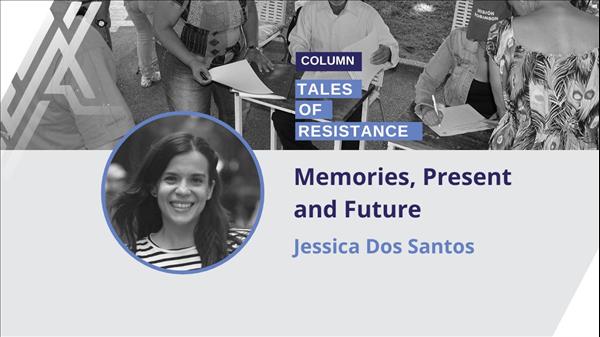(MENAFN- Venezuelanalysis) I recently read that some twenty years ago President Hugo Chávez launched the National System of missions , a series of social programs in several areas including food, education, housing and healthcare. It was a multi-pronged offensive to pay back the“social debt.”
This got me recalling how many years ago, when I was 23 years old and fresh out of university, I taught in Mission Robinson II. This was a program meant to give people a sixth-grade education. I had students both from Robinson I (literacy and early primary school) as well as those over 15 who, for one reason or another, did not get the chance to finish their primary schooling.
Those evening classes, held in a giant Caracas school called“Gran Colombia” to make it even more romantic (1), shook all my social sensibility fibers. I, and all the other instructors, were dead set on ensuring that everyone had the necessary tools to not get screwed over by those from above, and I was sure that together we could do it.
In truth, the consequences of a lack of education were not foreign to me. My parents, both Portuguese immigrants, barely finished third grade, and in my childhood I witnessed time and again how challenging it was for them to communicate. Even more so in a different language.
I always remember how my mother used to ask me to fill in the bank paperwork. That had me sweating to make sure the numbers, letters and amounts were all correct. The most dramatic moments were even worse: being 10 years old and filling out hospital forms during a health emergency.
During my time in Robinson II, I also got to know a town in the Venezuelan llanos where practically all campesino workers were paid in“hands” of bananas plus some cash. Still, they were always screwed over because, since they could not read their pay slips, they could not tell if they were getting the right amount. In fact, it was common for them to sign with their thumbprints.
This adventure featured many different people, from different generations, genders, trades and backgrounds. The drive to do something for the common good even attracted people, both lecturers and students, that had nothing to do with socialist principles. They ended up joining an initiative they saw as“humane,”“beautiful” or“above party politics.” Maybe this is one of the most important triumphs of the Chavista project: having reached a hand out to the wretched of the Earth, those who were historically forgotten and politically alienated.
Nowadays, things are very different. The old way of doing politics, which never strays far from electoral calculations, is ever more present to the point where its logic spreads everywhere. Even strategies like the recent anti-corruption probe in the oil industry are, one way or another, dominated by a looming electoral context.
I would even dare say that with initiatives like these the government is looking to recover popular support, as if it were some kind of magic trick. As if there is a hidden formula somewhere that will bring back the support of yesteryear overnight.
But most of us know this will not happen so fast. For years now we have been denouncing the ever more clear signs of corruption. That won't be brushed away with 80 or even 150 arrests with unclear consequences. And it's not just corruption. For a while now there have been policies that no longer prioritize the majority in a context where discussions and debates become more and more difficult.
Right now we are like wounded cats. We were run over and we are extra cautious, we struggle to get too close and trust again, no matter how hard we are called and how succulent the food on the plate appears. We will walk around a bit more and see what unfolds.
One of the government's latest gambits was a new television show called“Con Maduro +” (“More with Maduro”). I don't want to be mean, but the aesthetics remind me of those game shows that gave away washing machines and ovens. There was even an AI-generated host to boot.
The communications policy has been deficient (I'm being generous here), so I applaud that new formulas are being tried out. Nevertheless, this latest one contrasts completely with the iconic style of Chávez's“aló presidente ,” which was born as a radio show before migrating to television and sidestepped all the clichés. It could last up to 12 hours, jump from one subject to the next, with no commercial breaks. It had real participation, heart-wrenching moments that were not scripted and genuine scoldings (usually from Chávez himself against his ministers). It's no exaggeration to say that communication, the ability to transcend the traditional mediation channels, was key to Chávez's connection to the people.
It must be said that the times have changed, technology now plays a much bigger role, and it is also unfair to always hold Chávez as the measuring stick. But it's more than that. In Aló Presidente, for the most part, there was no blatant pandering to voters. Chávez knew that, one way or another, his policies and programs like the social missions spoke for themselves. Furthermore, for most of his time in government, even with the media, the Church and the business sector all against him, Chavismo won elections quite handily.
This is far from the case right now. Maduro will run for reelection and in October the opposition primaries will define his main opponent in next year's presidential elections. None of them is looking inspiring, even amidst die-hard opposition ranks. And I mean none of them.
Will there be time and will to rebuild the people's trust one step at a time? Or will opposition mediocrity remain the government's biggest asset? We shall see...
(1) Gran Colombia was the newly independent state led by Simón Bolívar in the early part of the 19th century. It was later broken into modern-day Venezuela, Colombia, Ecuador and Panama.
Jessica Dos Santos is a Venezuelan university professor, journalist and writer whose work has appeared in outlets such as RT, Épale CCS magazine and Investig'Action. She is the author of the book“Caracas en Alpargatas” (2018). She's won the Aníbal Nazoa Journalism Prize in 2014 and received honorable mentions in the Simón Bolívar National Journalism prize in 2016 and 2018.
The views expressed in this article are the author's own and do not necessarily reflect those of the Venezuelanalysis editorial staff.
Translated by Ricardo Vaz for Venezuelanalysis.



















Comments
No comment